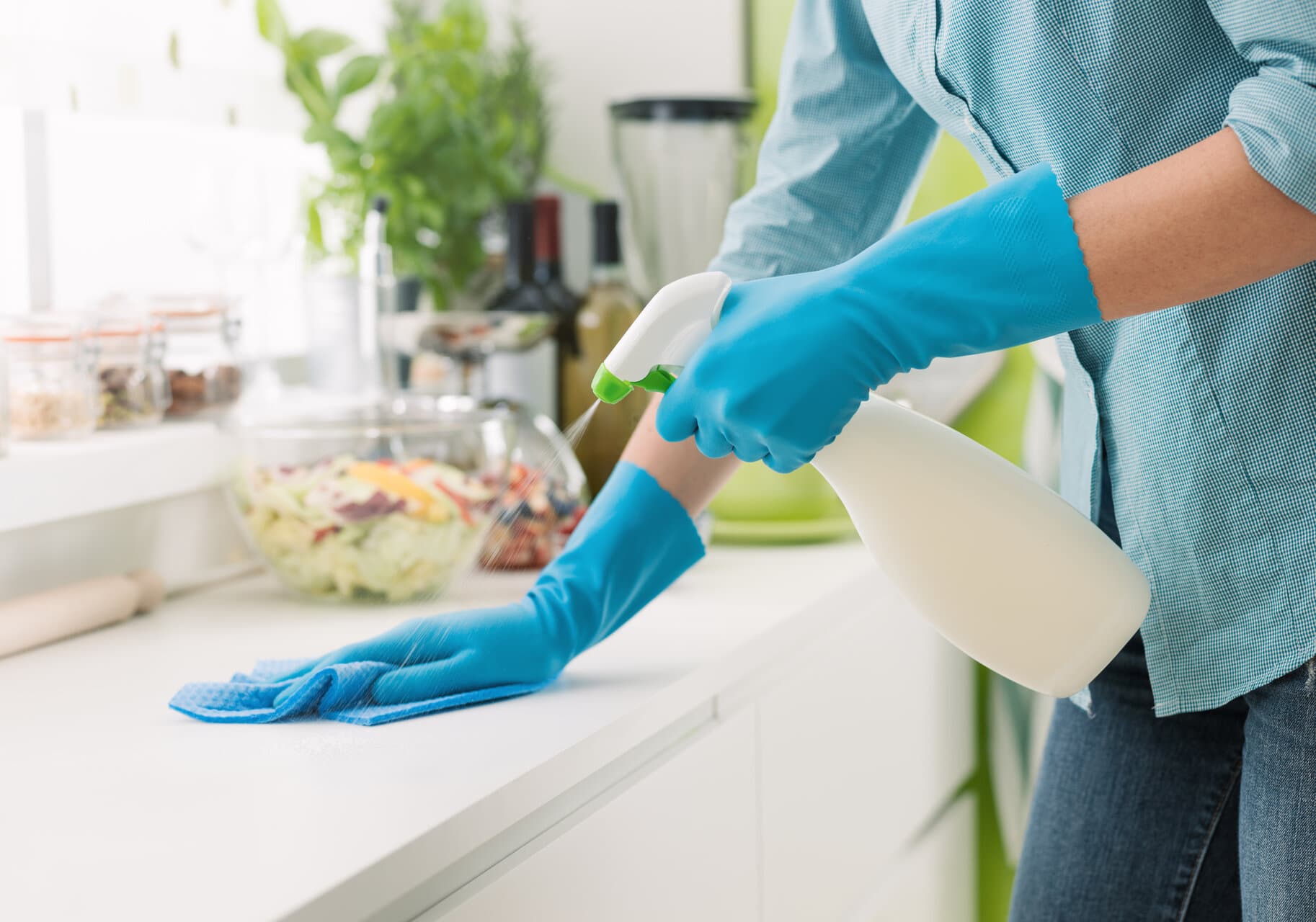The term has been made famous by Instagrammer, mrshinchome, who has grown her following and influence on the platform.
She has amassed over three million followers and appeared on national TV shows, including ITV’s This Morning.
Her promotion of cleanliness and high hygiene standards might seem like a good thing. But, Kirstie Jones, environmental health officer at Navitas Safety, administrators of digital food safety management, compliance and training services, explains that the new trend in cleaning could actually be causing you harm.
Obsessive cleaning practices can become an issue, particularly where food and preparation areas are involved. And now, faced with the coronavirus outbreak, it’s only to be expected that people’s concerns have been heightened.
So instead of the usual routine wipe downs, thorough disinfecting has become the trend. We understand the logic – people are understandably concerned with the risk of bacteria being transferred from food and packaging bought from a supermarket into a home or commercial kitchen.
Debates around how long the virus remains alive on surfaces continue, too. Original estimations were up to 72 hours on tables and glass, so caution is certainly required.
How should food and kitchens be cleaned?
Firstly, we should note that not everything needs to be cleaned. For instance, if a product comes labelled as ‘washed and ready to eat’, it should be perfectly safe to consume without cleaning. And as a reminder, raw meat and fish shouldn’t be washed prior to cooking, as this is a real risk of cross-contamination.
But to provide peace of mind, there are a number of ways you can safely clean items and in particular, packaging, which is where the biggest issue lies.
You should thoroughly clean glass or other non-porous containers prior to storing them away in cupboards, refrigerators or freezers.
You should however, avoid washing any packaging which is porous, such as cardboard, as this could result in contamination of the contents within. Items which cannot be safely washed, then, should have any outer box or packaging removed and the contents safely decanted into food grade containers.
When storing food, it’s important to ensure that dry items do not get damp or wet as this will encourage bacterial growth.
Food grade plastic storage containers or glass air-tight jars are ideal for storing food and can be easily sanitised before and after use. If you are decanting food, you may want to keep the packaging, so you have a record of use by dates and allergen information.
We would also recommend using wipes rather than sprays to clean down surfaces and containers – Dettol wipes are great for this. And of course, wash your hands before and after handling packaging and decanting food, or wear disposable gloves.
Chemical contamination
While Dettol wipes are safe for exterior packaging and surfaces, there are many chemicals and cleaning products that could be hazardous if they cross-contaminate food.
You should only ever use cleaning products that are food safe in the kitchen. You can check this by looking at the bottle or packaging as those that are food safe will be labelled as so.
A common example of one that isn’t is bleach. Bleach should never be used in the kitchen as it can cause chemical contamination if transferred onto foods, which if you then consume, can harm your digestive system.
Instead, use chlorine-based products, carefully. Milton Sterilising Fluid, for instance, is a popular alternative. You can use it safely to clean everything from baby bottles to unpeeled fruit and raw vegetables.
Another concern for people at the moment is hand sanitisers. We should all be using them, and many food establishments require customers to clean their hands with some before being seated or served.
Most hand sanitisers are 60-70% alcohol based. Fortunately, these won’t cause any harm should you accidentally digest some as most are designed to be food safe. The main issue is that it won’t taste very nice!
In the same way that heat works in cooking, dishwashers can kill bacteria during ‘heat treatment’ rinses that reach a temperature above 82°C. In commercial kitchens, it’s important that this is assessed regularly through a food safety audit, as carried out by Navitas Safety consultants, for example.
When it comes to surfaces however, chemical cleaners are still the preferred method of sanitising. The issue of opting for products that are too harsh and not appropriate for the specific area is that chemicals can begin to cause corrosion.
Over time, this can create expensive damage to the kitchen and worse, physical food contamination. An example could be metal work within your kitchen that begins to break away due to the corrosion. If any pieces of this get into food that is then unknowingly consumed, it could cause injury.
So, although clean-influencers mean no harm, their methods and advice isn’t always informed by training in health and safety standards. Therefore, it’s important that you do your own research before blindly believing what you see online.





